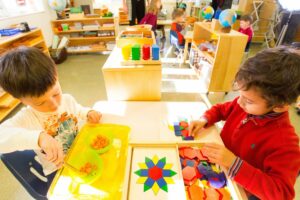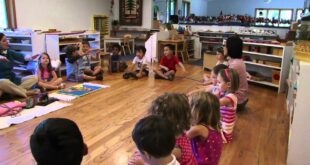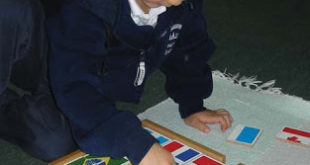The world of education has seen numerous methodologies and philosophies aimed at catering to the diverse learning needs of children. Among them, the Montessori approach stands out, particularly in its alignment with the requirements of children with special needs. Let’s journey into how Montessori education can serve as an invaluable tool for children with unique learning requirements.
Montessori’s Origin and Special Needs
Interestingly, Dr. Maria Montessori began her work with children who had developmental disabilities. Her initial successes in Rome with these children laid the foundation for what would later become the Montessori method used worldwide.
Montessori Principles that Align with Special Needs
- Individualized Learning: Every child progresses at their own pace in a Montessori classroom. This approach aligns perfectly with children with special needs, allowing them to work on tasks that match their developmental stage without unnecessary pressure.
- Multi-Sensory Materials: Montessori materials are designed to be tactile and engage multiple senses. Such materials can be therapeutic and engaging for children with sensory processing challenges or other disabilities.
- Structured Environment: Montessori environments are orderly and predictable. For children with autism or other developmental disorders, such consistency can offer comfort and clarity.
- Peer Learning: Multi-age classrooms promote peer interaction and mentorship. Often, children with special needs benefit immensely from the social interactions and bonds formed with peers.
- Emphasis on Autonomy: Encouraging independence can be empowering for children with special needs, boosting their confidence and self-worth.
Case Studies and Success Stories
Numerous anecdotes and case studies highlight the benefits of Montessori education for children with special needs. From improved focus in children with ADHD to enhanced social skills in children on the autism spectrum, the results are promising.
Challenges and Considerations
While Montessori can offer numerous benefits, it’s essential to remember that each child is unique. Collaboration between educators, therapists, and parents is crucial to tailor the Montessori approach to each child’s specific need.
Special Needs in Montessori Conferences
For educators, parents, and therapists interested in the intersection of Montessori and special need, professional conferences offer a treasure trove of knowledge. The Children Change The World Montessori Conference in Canada often features sessions dedicated to this very topic. To delve deeper into this area and others, you can explore their comprehensive schedule at www.childrenchangetheworld.com/schedule.
Conclusion
The Montessori approach, with its inclusive, individualized, and multi-sensory methodology, offers promising avenues for children with special need. While challenges persist, the potential benefits and transformative stories underscore the value of this harmonious blend.
Special Needs and Montessori
Montessori in Calgary
 Montessori blog Montessori blog
Montessori blog Montessori blog 



